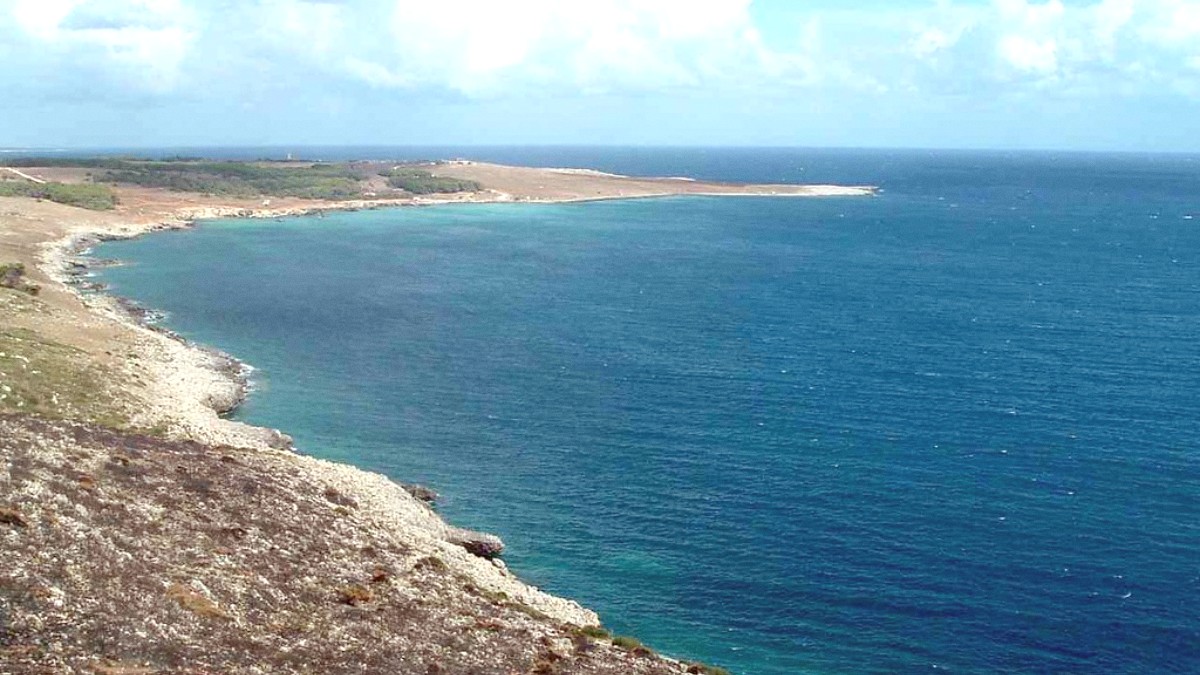
Puglia, Italy
Spring (April-May): Temperatures are pleasantly mild, ranging from 15-25°C (59-77°F). Rainfall is moderate, mainly in April, decreasing as May progresses. Sunshine grows steadily, and humidity levels remain generally comfortable, making it good for outdoor activities and sightseeing.
Summer (June-August): Hot and dry weather dominates this period, with temperatures typically between 28-35°C (82-95°F). July and August often see temperatures rise above 40°C (104°F) during heatwaves. Precipitation is low, but coastal areas can experience high humidity. This is prime beach weather, but also the most intense period for heat.
Beach & Swimming: June to September delivers the warmest sea temperatures and most reliable sunny weather. Early June and September are ideal for comfortable beach days with fewer crowds.
Sightseeing & Walking Tours: April, May, early June, September, and October give pleasant temperatures for exploring Otranto's historic center, castle, and coastal paths.
Peak Crowds, Highest Prices
Ideal beach weather, all services fully operational, lively evenings.
Crowded, peak prices, intense heat can make sightseeing uncomfortable.
Balanced Experience
Pleasant temperatures, fewer crowds, better prices, sea warm for swimming.
Some services may have reduced hours in early spring/late autumn, chance of rain in October.
Authentic Glimpse, Lowest Prices
Fewest crowds, lowest prices, mild weather compared to Northern Europe.
Many tourist businesses closed, limited hours, no beach activities, sea too cold for swimming.
Cycling: Spring (April-May) and Autumn (September-October) are perfect for cycling along the coast or through the olive groves, with comfortable temperatures and beautiful light.
Culinary Experiences: Puglia's cuisine is delicious year-round. However, spring brings fresh broad beans and sea urchins, while summer and autumn deliver a peak of fresh fruits, vegetables, and seafood. Food festivals ("sagre") are more common in the warmer months.
Summer heatwaves can reach over 40°C (104°F). Plan outdoor activities for cooler hours.
Sirocco wind (hot, humid) comes from the southeast. Tramontana (cold, dry) brings refreshment.
Humidity levels are generally comfortable outside of peak summer.
Sea water stays warm enough for swimming well into October.
Occasional rainfall begins in late October and peaks in December/January.
Italy is a member of the Schengen Area, a group of 27 European countries that have abolished passport and all other types of border control at their mutual borders. This means that once you enter the Schengen Area, you can travel freely among member countries without further passport checks.
Citizens of many non-EU/EEA/Swiss countries may need a Schengen visa for stays up to 90 days within any 180-day period. This visa makes possible travel throughout the entire Schengen Area.
From mid-2025 (estimated), visa-exempt travelers will need ETIAS authorization, a pre-travel authorization, not a visa.
These services aid in visa applications and insurance coverage for your travel.
Puglia, while giving good value compared to Tuscany or the Amalfi Coast, still has price variations depending on your travel style and the season.
The official currency of Italy, and Otranto, is the Euro (€, EUR). ATMs, known as "Bancomat," are widely available.
Credit and debit cards (Visa, Mastercard) are widely accepted in most hotels, mid-range to fine dining restaurants, and larger shops. Carry some cash for smaller purchases or local markets. Inform your bank of travel plans.
Daily spend around €40-€70. Includes hostel dorms, basic B&Bs, supermarket food, and public transport.
Eat like a local: supermarket groceries, street food, pizza slices.
Avoid private transfers and fine dining.
Daily spend around €80-€150. Includes mid-range hotels, local trattorias, and occasional taxis.
Enjoy local trattorias for authentic meals.
Be aware of seasonal price changes.
Daily spend €200+. Includes boutique hotels, fine dining, and private transfers.
Indulge in gourmet experiences and luxury accommodations.
Book well in advance, especially during peak season.
| Category | Budget (€40-€70/day) | Mid-range (€80-€150/day) |
|---|---|---|
| Accommodation (per night) | €20-€35 (hostel dorm, basic B&B) | €40-€80 (mid-range hotel, guesthouse) |
| Meals (daily) | €15-€25 (groceries, street food, pizza) | €30-€60 (local trattorias, cafes) |
| Transportation (daily) | €5-€10 (public buses, walking) | €10-€20 (buses, occasional taxi, shared car) |
Italy is a safe country for tourists, and Otranto is a specifically relaxed town. However, being informed and prepared is always a good approach.
No specific vaccinations for entry. Ensure routine ones (MMR, DTP) are up-to-date.
Use High SPF sunscreen, wear Hats/Sunglasses, seek shade, stay hydrated.
Present during warmer evenings. Use Insect repellent.
Dial 112 for all emergencies (police, ambulance, fire).
Italy has a public healthcare system (SSN). EU citizens use EHIC. Non-EU citizens pay upfront, so travel insurance is strongly recommended. Pharmacies are identifiable by a green cross.
Tap water in Otranto is safe to drink. Food hygiene standards in regulated establishments are high. Petty crime (pickpocketing) is low but keep valuables secure.
Major regional hospital: Ospedale Vittorio Fazzi in Lecce.
Highly recommended for all. Covers medical emergencies, trip cancellation, lost baggage, personal liability. Compare policies.
Valid European Health Insurance Card (EHIC) for free or reduced cost medical treatment.
Identified by a green cross. Trained pharmacists give advice for minor ailments, over-the-counter medications, fill prescriptions.
Otranto is generally very safe with low crime rates. Violent crime is rare. Petty crime like pickpocketing is less common than in larger Italian cities.
Prepare a list of important contacts before your trip. Keep digital and physical copies of documents separate.
Dial 112 (unified European emergency number for police, ambulance, fire).
Dial 1530 for sea emergencies or coastal problems.
Report to local police, then contact your country's embassy/consulate in Italy.